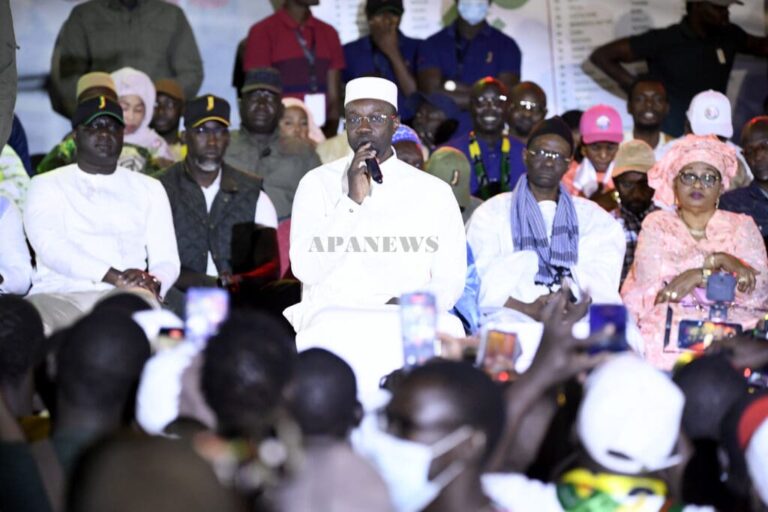Despite the fact that several opposition coalitions dream of cohabitation, the PASTEF party has taken the risk of going alone to the early legislative elections next Sunday, seven months after coming to power with a legislative contract based on the “Systemic Transformation Project” proposed to the Senegalese.
The party “African Patriots of Senegal for Work, Ethics and Fraternity” (PASTEF), has decided to go solo for the election, aiming for a parliamentary majority. Last September, its president, the current Prime Minister Ousmane Sonko, informed his allies in the Diomaye President Coalition that his party, founded 10 years ago, would run alone in the early legislative elections on November 17.
This decision surprised more than one within the coalition that brought to power President Bassirou Diomaye Faye, appointed by Sonko, a charismatic and very popular leader of the Senegalese political scene.
The bet is described as risky by several analysts and observers, since most of the presidential and legislative elections won in recent years were under the banner of party coalitions.
However, PASTEF and its leader say they are confident in their political strength. Supported by several leaders of the former regime, particularly in rural areas, they are convinced of their ability to obtain a majority next Sunday to initiate the national transformation agenda of Vision Senegal 2050, the new framework for public policies presented in mid-October.
Ousmane Sonko has focused his campaign, which ends this Friday, on this framework. He has travelled practically the entire country to explain his vision of inclusive development for Senegal, structured around eight territorial poles (Dakar, Thies, Center, South, Southeast, Northeast, North, Diourbel-Louga) instead of the current 14 administrative regions.
This ambitious programme, the first phase of which extends until 2029, requires funding of over 18,000 billion CFA francs. It aims to develop a strong private sector, capable of transforming the natural resources of each locality and creating millions of jobs.
One election, a thousand issues!
On Wednesday, during a meeting in the suburbs of Dakar, the leader of PASTEF explained that the ‘Pole de Dakar’ would be transformed into a “cultural, scientific and tourist hub” to rebalance the region’s economic share, currently estimated at 46 per cent of national wealth to 29 per cent.
“Dakar represents only 0.05 per cent of the national territory,” he stressed.
The hub of this will focus on mining and agro-industry, while the South-East hub will become a diversified economic basin. As for the Diourbel-Louga hub, it aims to become a major industrial and urban center, while promoting its religious heritage.
Finally, the North will play a key role in the country’s food sovereignty by developing a competitive agro-industrial sector, explained Ousmane Sonko, accompanied by his supporters from whom he is asking for an “overwhelming majority” in parliament to implement the programme that brought Bassirou Diomaye Faye to the presidency.
“Last March, you chose us with 54 per cent of the votes in the first round of the presidential election. Now we must give us an overwhelming majority in the National Assembly on November 17. You have the opportunity here to strengthen Senegal’s credibility both internationally and in the country,” he told his supporters during a fundraising meeting organised in the Dakar Arena basketball hall in Diamniadio, which was packed to the rafters.
Facing him, the opposition agreed to coordinate its forces in certain constituencies despite the plurality of proposed lists. Ousmane Sonko will have to face former President Macky Sall, Dakar Mayor Barthelemy Dias and former Prime Minister Amadou Ba, who all lead lists but have agreed, despite their disagreements, to support the strongest opposition list in each locality.
For Ousmane Sonko, the stakes go beyond the legislative elections. It is also about removing the old political class, which he accuses of having slowed down Senegal’s development since 1960. In the event of a majority in parliament, PASTEF, which plans to obtain no fewer than 150 deputies out of the 165 seats in the National Assembly, promises to tackle, in the first months of the 15th legislature, the repeal of the amnesty law relating to political violence that caused the death of more than 80 people between 2021 and 2024.
He also undertakes to pursue dignitaries of the former regime accused of embezzlement of public funds by setting up the High Court of Justice.
ODL/Sf/te/fss/gik/APA


